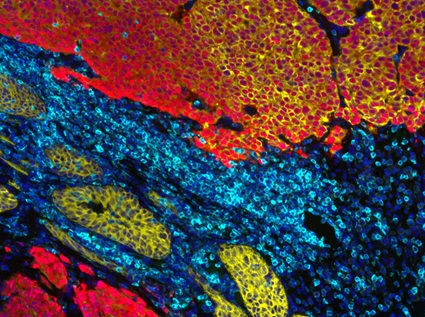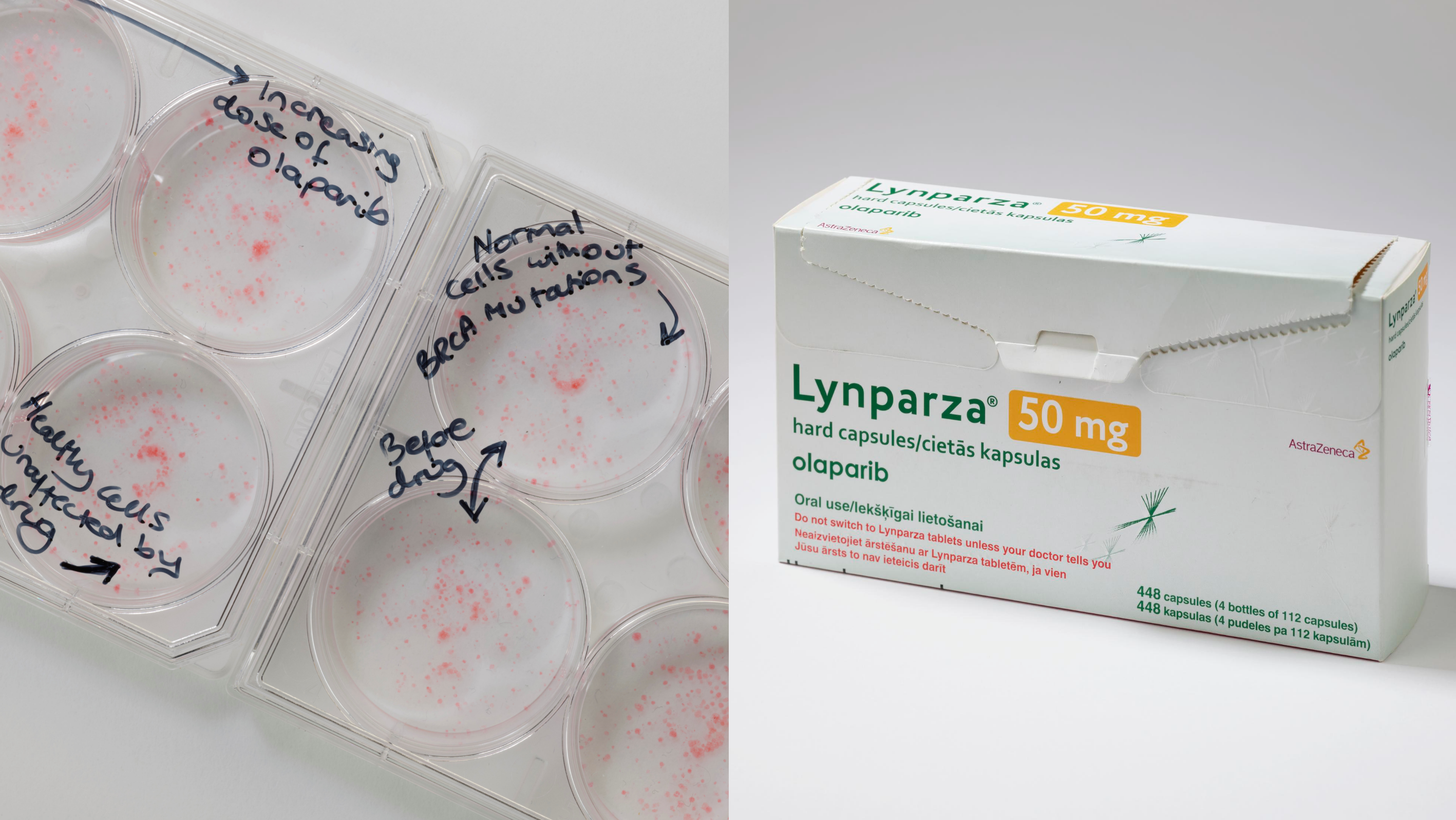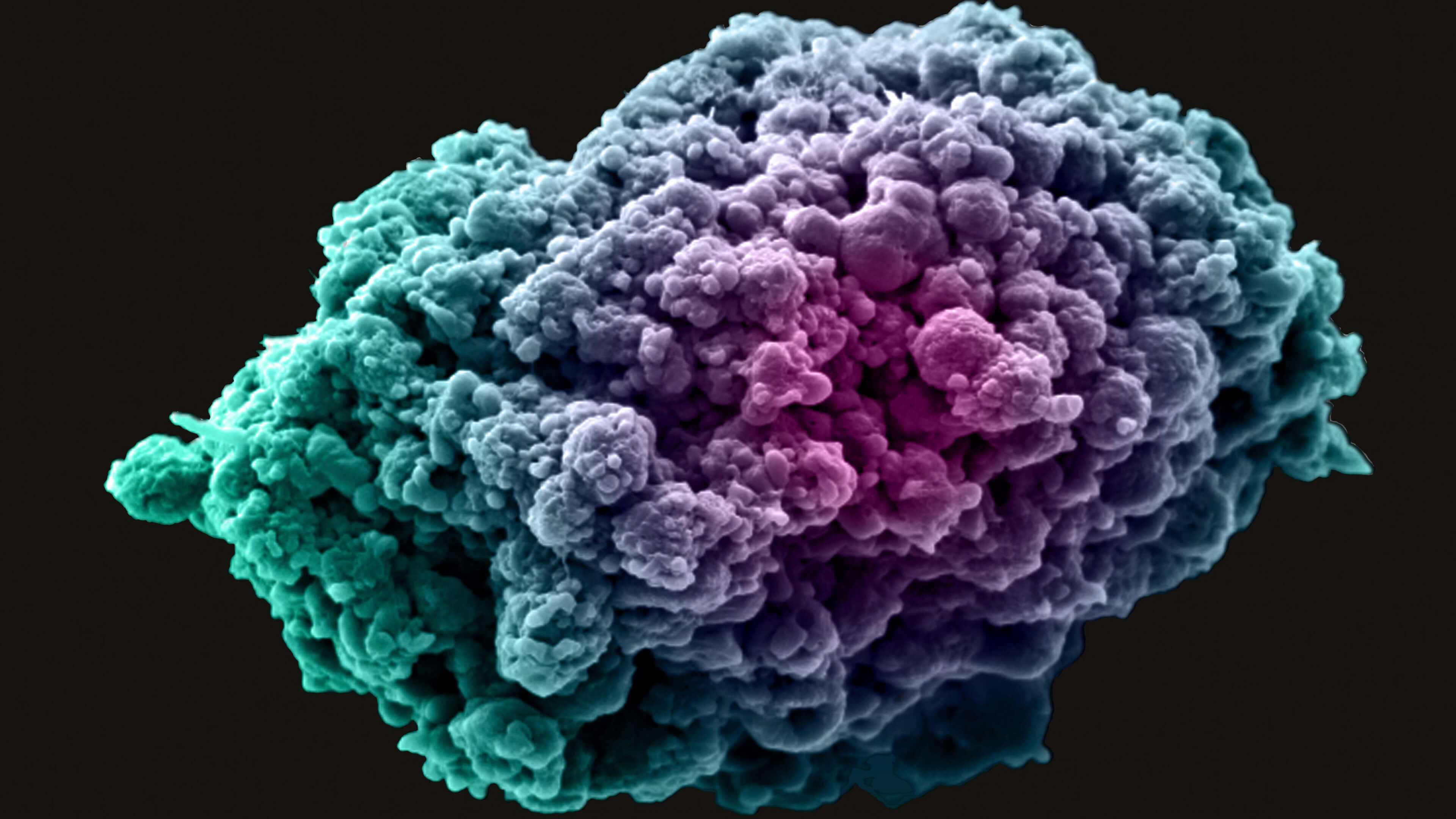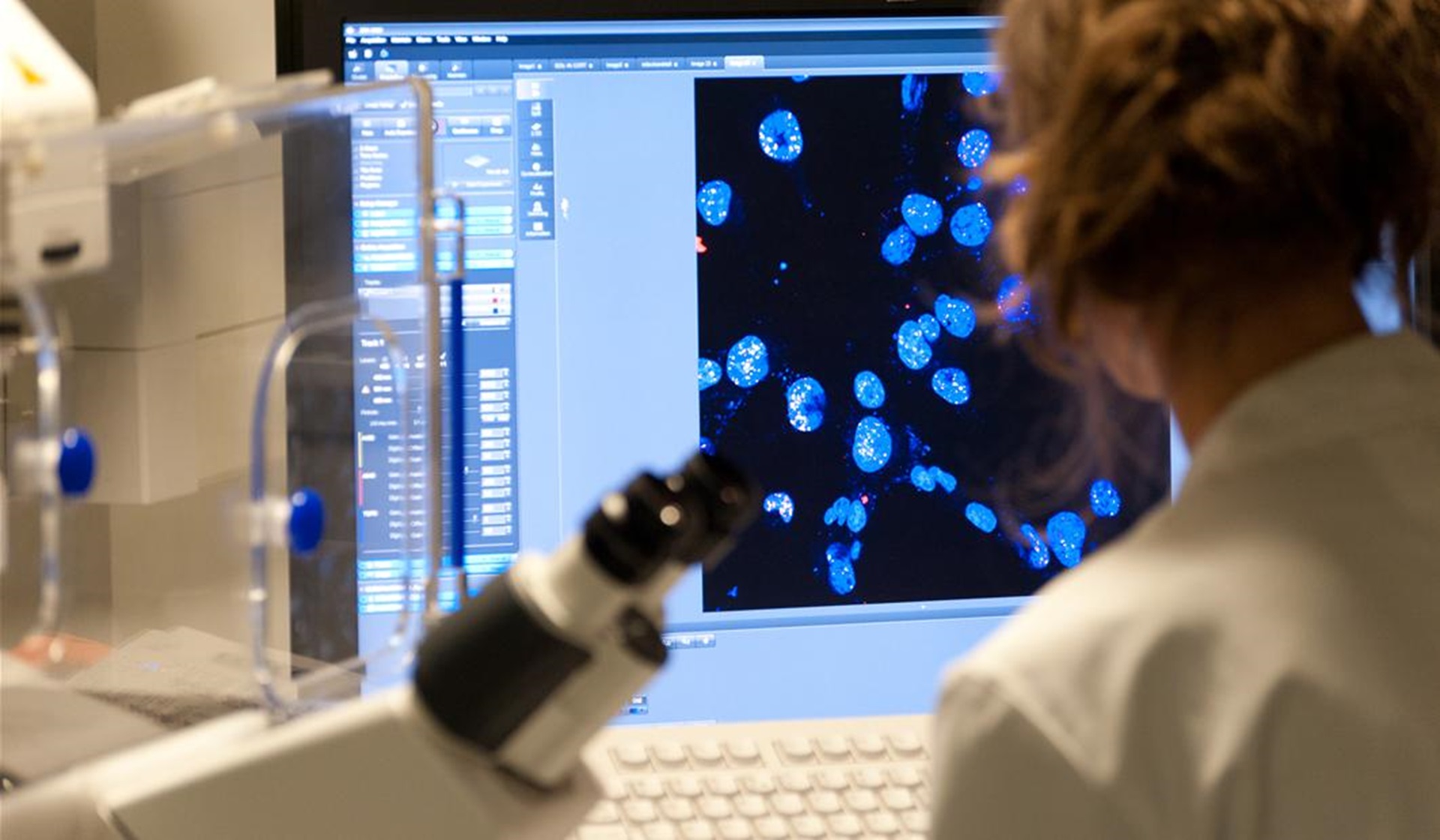Centre for Genome Stability
at the ICR and The Royal Marsden
Centre for Genome Stability (CGS) is a unique multidisciplinary programme bringing together experts from across the ICR and The Royal Marsden who work on DNA-damage response and genome instability research with clinical experts in the treatment of cancer.
How we research at this centre
Our world-leading centre of excellence aims to understand genetic, epigenetic and proteomic changes to genomic stability in the development of cancer in order to develop biomarkers and therapeutic targets for improved cancer treatment. This will allow us to apply multidisciplinary approaches to address important research questions, thus accelerating discoveries into the causes of tumorigenesis and delivering major clinical impacts, both nationally and internationally.
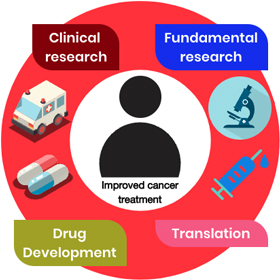
We aim to harness the breadth of expertise in genomic stability at the ICR to develop new and better therapies against cancer to make the most meaningful impact in clinics.
The centre will establish a single-domain antibody screening facility to generate DNA-repair related biomarker detection and intracellular antibody protein perturbation tools.
The Centre's main themes are as follows:
Molecular Mechanisms of Genome Stability Maintenance
Maintenance of genome stability is accomplished throughout the cell cycle by a complex network of proteins referred to as the DNA-damage response (DDR) pathways. Mutations in DDR factors are associated with elevated cancer predisposition. Understanding this will allow us to target tumour-specific DDR dependencies for improved cancer treatments.
Understanding Replication Stress Responses
Cells control DNA replication with the highest possible fidelity in order to prevent catastrophic changes to their genome. Understanding how DNA replication and repair machineries function and how these processes differ in cancer cells could provide new prognostic tools and therapeutic targets.
Integrative Systems Biology of Cancer and Ageing
We will develop tools to interrogate large data sets of genetic, genomic and proteomic information to generate hypotheses for experimental analysis, with the ultimate goal of understanding the changes that occur to the genomes and proteomes of cells as they transition to a cancerous or aged state.
Genome Instability and Cancer Therapeutics
New dependencies within the DDR pathways may represent targetable vulnerabilities in cancer cells, with a major focus on synthetic-lethal interactions and over-reliance on DDR pathways allowing for selective killing of cancer cells.
We want to accelerate the translation and delivery of our research.
As one of the world’s most influential cancer research institutes, we discover more new cancer drugs than any other academic centre in the world. We have made game-changing discoveries that revolutionised the way cancer is studied and treated.
Work with us in the Centre for Genome Stability to develop and commercialise our novel discoveries to defeat cancer. Contact us at [email protected] to work with us.
Internal collaborative opportunities
The Centre supports activities to bring together genome stability expertise across the ICR and The Royal Marsden in order to support and develop new collaborative opportunities.
Centre short talk series
Participate in our series of short talks and hear from colleagues. Next event is expected to take place in October 2024. Further details TBC.
Single-domain Antibody Facility
We have established our Single-domain Antibody Facility with ongoing pilot studies. There will be a call for screening projects.
Requirements to access the facility
Protein/antigen concentration of 500µg – 1mg, with objective of antibody for advice on tag (i.e. denatured/native form of protein). Final validation to be undertaken by research teams due to limited capacity within the facility. If you are interested to find out more, please contact Dr Divya Duscharla at [email protected].
Clinical Research Fellowships
Colleagues across the ICR and The Royal Marsden can apply to appoint Clinical Research Fellows (3-year PhD), addressing a reverse translation topic (bed-to-benchside) and involving clinical and fundamental research labs.
We are now accepting outline project proposals from potential supervisors for the next round of Clinical Research Fellowships for 2025/26 entry.
Please contact [email protected] to express your interest or if you have any questions.
Our researchers at this centre
Fundamental research
Biography
Professor Andrew Tutt qualified in medicine in 1990. After postgraduate training in General Medicine, he trained in clinical oncology at the The Royal Marsden NHS Foundation Trust before gaining a Doctoral Research Training Fellowship from the Medical Research Council to work in Professor Alan Ashworth’s laboratory at The Institute of Cancer Research, London.
Here, he worked on the then-unknown DNA repair functions of the BRCA2 breast cancer predisposition gene and was awarded his PhD in 2002. In his postdoctoral work as a Clinician Scientist he identified the synthetic lethality between PARP inhibitors and BRCA1/2 mutations with Professor Chris Lord and Professor Alan Ashworth.
He went on to design the Single Agent Proof of Concept Phase I trials and associated DNA repair biomarker studies with the ICR and The Royal Marsden Drug Development Unit, and has since led international Phase II and III trials for BRCA1/BRCA2-associated malignancy.
He cares for women with breast cancer as a Consultant Oncologist in the multidisciplinary Breast Unit at Guy’s and St Thomas’ NHS Foundation Trust. He is Professor of Breast Oncology and Director of the Breast Cancer Now Research Unit at King’s College London and has recently been appointed Director of the Breast Cancer Now Toby Robins Research Centre, Head of the Division of Breast Cancer Research and Professor of Breast Oncology at the ICR.
Professor Tutt has developed a translational laboratory for triple negative breast cancer. He leads a clinical trial programme focusing on TNBC and cancers associated with functional deficiencies in BRCA1 and BRCA2.
He also leads translational laboratories at both the ICR and KCL, studying BRCA1 and BRCA2 associated TNBC forms of breast cancer. Andrew’s group publishes in high impact journals regularly and amongst their latest work they published a new TNBC target, PIM1 kinase, in Nature Medicine in November 2016.
He is Chief Investigator for the recently reported multicentre UKCRN ”Triple Negative Trial” and is Global Study Chair of the ‘OlympiA’ study – an adjuvant PARP inhibitor trial in patients with germline BRCA 1/2 mutations and breast cancer.
He has been a Visiting Professor at British Columbia Cancer Agency, Jean Lubrano Visiting Scholar at Harvard Medical School, and is a member of the St Gallen Early Breast Cancer International Consensus Panel and recently received the Addarii Award for his work in the field of breast and ovarian cancer research.
Professor Tutt is a member of the Cancer Research UK Convergence Science Centre, which brings together leading researchers in engineering, physical sciences, life sciences and medicine to develop innovative ways to address challenges in cancer.
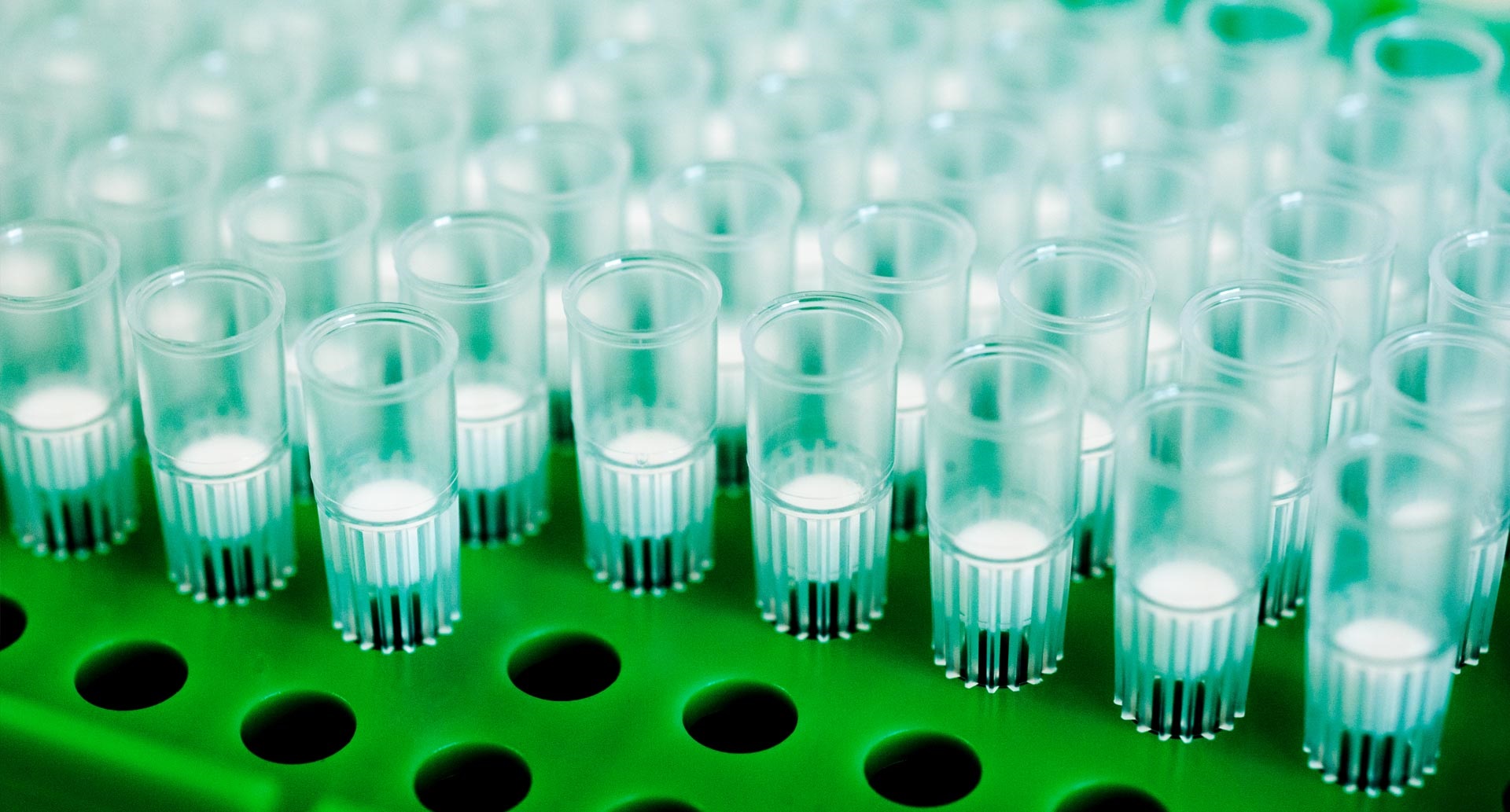
.png?sfvrsn=38d02ad6_1)
